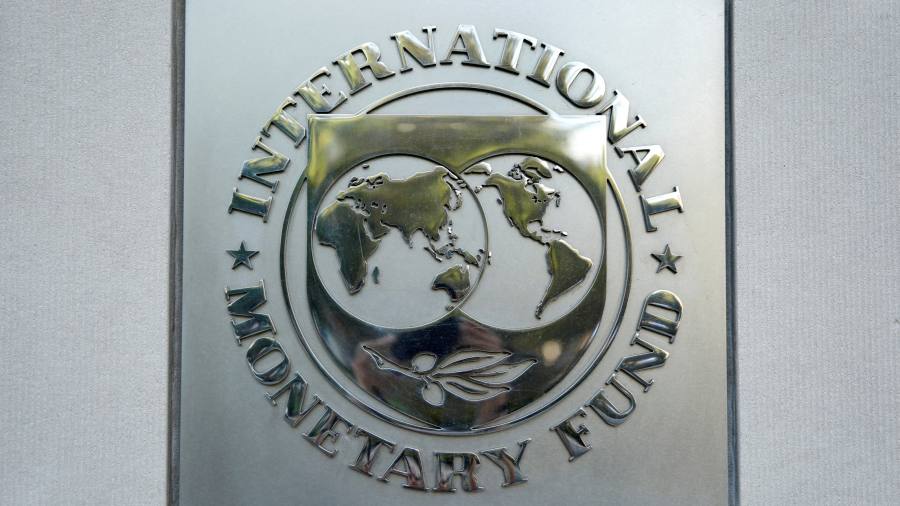Good morning. This article is an on-site version of our FirstFT newsletter. Sign up to our Asia, Europe/Africa or Americas edition to get it sent straight to your inbox every weekday morning
UK chancellor Jeremy Hunt is exploring plans to keep providing all British businesses with help for their energy bills once winter has passed, in what would be a break with current government policy to limit such aid to “vulnerable industries” after March.
The potential change in the government’s support package for business, which several officials said was under active discussion, would involve ditching plans to shift to targeted aid — partly because of the complexity of deciding which groups should benefit.
But the overall package would be set at a lower level than the current six- month-long business energy package, with a cost the government has estimated at £29bn. It is due to expire on March 20.
The discussions reflect wider fears that the energy crisis is set to continue well after the spring, with some analysts warning that next winter may prove an even tougher test for the UK’s infrastructure and businesses.
Craig Beaumont, chief of external affairs at the Federation of Small Businesses, said that without further government support next year, “a huge proportion of the business community will become unviable”.
According to FSB research, almost a quarter of small firms would shut down, sell, shrink or restructure unless help is extended beyond March.
Five more stories in the news
1. Fed raises rates by a half point as central banks enter new phase The Federal Reserve yesterday raised its benchmark policy rate by half a percentage point and signalled its intention to keep squeezing the US economy next year, as central banks on both sides of the Atlantic enter a new phase in the battle against inflation.
2. Mobile games market set for decline The arrival of Apple’s App Store in 2008 kick-started more than a decade of growth in mobile games, turning them into a $100bn market. Now, that market is set to fall for the first time, hit by rising advertising costs, a drop in consumer spending and the end of the pandemic’s boost to player engagement.
3. Goldman weighs bonus cut at investment bank Goldman Sachs is considering shrinking the bonus pool for its more than 3,000 investment bankers by at least 40 per cent this year, as chief executive David Solomon tries to control costs with deeper cuts than many of its Wall Street rivals.
4. Nurses in England and Wales to stage historic strike Nurses will stage a historic walkout today as Britain’s wave of pay strikes intensifies, after Labour leader Sir Keir Starmer claimed the industrial action was a “badge of shame” for Rishi Sunak’s government.
5. Beijing withdraws diplomats over consulate assault China has withdrawn six UK diplomats, ahead of their likely expulsion following an attack on a pro-democracy protester in the grounds of the Chinese consulate in Manchester.
The day ahead
Central banks Most economists expect a 0.5 percentage point increase to 3.5 per cent when the Bank of England meets today. UK inflation dipped to 10.7 per cent in November. The European Central Bank’s governing council also meets today.
Scottish Budget John Swinney, Scotland’s stand-in finance secretary, presents the tax and spend plan for 2023-24.
Economic data The US publishes November retail sales and industrial production figures.
Earnings Adobe, Biffa, Currys, OVS and Serco report earnings, while H&M has a fourth-quarter sales update.
What else we’re reading and listening to
Fall of the house of Sergei Leontiev He said he was a refugee from Vladimir Putin’s autocracy. But why did financial entrepreneur Sergei Leontiev really leave Russia for exile in the US? Accounts from former colleagues, foreign shareholders and experts in Russian finance paint a different picture.
The world can be a better place Martin Wolf is veering on the side of optimism in his must-read column, but argues that it is time we learnt to move faster to deal with all the challenges we face.
What if work is making us sick? The number of people claiming disability benefits in the UK has doubled in a year, while working-age deaths that did not involve Covid-19 are on the rise. How to get people back to work is the question from policymakers. But what if work itself is part of the problem?

-
Drug prices: Gene therapies may cure disease but can we afford them?
-
A tale of cancer care: Invisible pricing in the US healthcare market means a heady and expensive roulette, which many stand to lose, writes Claire Bushey.
‘I feel for the regulators. You’re damned if you do and you’re damned if you don’t’ Sheila Bair helped lead the response to the 2008 financial crisis as head of the US Federal Deposit Insurance Corporation. In an interview with the Financial Times, she warns that regulators have never really got to grips with private equity, hedge funds and private lenders, collectively dubbed “shadow banks”.
Fighter jet alliance with Japan could boost Asian exports The UK and Italy’s partnership with Japan to build a new combat jet could open up Asian export markets that have historically proved difficult to penetrate.
Art
Artists are returning to the Renaissance for inspiration. But while a new generation is honouring the styles, subjects and forms of the period, they are also modernising them.

Thank you for reading and remember you can add FirstFT to myFT. You can also elect to receive a FirstFT push notification every morning on the app. Send your recommendations and feedback to [email protected]
Recommended newsletters for you
The Climate Graphic: Explained — Understanding the most important climate data of the week. Sign up here
Long Story Short — The biggest stories and best reads in one smart email. Sign up here

















Comments 2